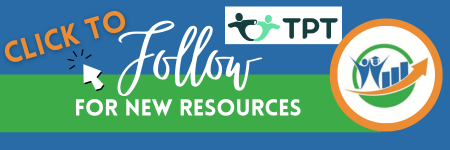7 Picture Books to Use with Older Readers
- April Connelley
- Jul 4, 2022
- 3 min read
Updated: Oct 31, 2025

Picture books aren’t just for preschoolers and younger children, readers of all ages enjoy and learn from picture books. I LOVE picture books! They are full of rich language, beautiful illustrations and photographs, and bonus, you can typically read them in one sitting.
In the classroom that means picture books can…
In one or two class periods allow students to study complex literacy components like theme and character development.
Be used as a mentor or anchor text all year long.
Build background knowledge to bridge understanding to lengthier complex text.
Expose students to a wide range of genres easily.
Demonstrate writer’s craft and sentence structure.
It’s hard to know where to begin, so I’ve highlighted 7 picture books to get you started on your journey. These are a few of my favorites, the more you read the more favorites you’ll have.

Hidden Figures: The True Story of Four Black Women and the Space Race Written by Margot Lee Shetterly with Winifred Conkling and Illustrated by Laura Freeman
The true story of four Black women, incredibly good at math, who persisted, until given a chance to work as computers in the Aeronautics division of the US government. Continuing on these leaders pushed forward furthering their education and eventually worked for NASA. Their influence shaped the future of space travel and their stories shaped future generations of those who dare to dream the impossible.

Frida Written by Jonah Winter and Illustrated by Ana Juan (Frida- English Version/ Frida-Spanish Version)
This biography will intrigue you both with examples of language and visual representations of the story of the renowned painter Frida. Students will not only learn about a famous artist, they will deepen their overall understanding of theme as they explore the ways Frida uses her imagination to overcome adversity while dedicating herself to something she loves.

Lillian’s Right to Vote: A Celebration of the Voting Rights Act of 1965 Written by Johan Winter and Illustrated by Shane W. Evans
As Lillian walks to the voting booth, she flashes back through history, highlighting the journey of her grandparents, parents, and herself earning the right to cast a vote. This complex picture book uses imagery to illustrate flashbacks and pulls language from the US Constitution to share history with readers.

Separate is Never Equal: Sylvia Mendez and Her Family’s Fight for Desegregation Written and Illustrated by Duncan Tonatiuh
During the summer of 1944, Sylvia moved to California, she was excited beyond words to attend school. She is turned away from the school closest to where she lives and sent to the Mexican school. This begins her family’s battle to desegregate the schools. This narrative biographical account of Sylvia puts a family at the heart of segregation.

Gleam and Glow Written by Eve Bunting and Illustrated by Peter Sylvada
This story of hope starts with a war torn country and family seperated and leaving everything they know. This work of fiction is based on true events but is told from a point of view that is not specific to any historical event. Gleam and Glow offers a connection to any historical event where people are forced to leave what they know in order to survive.

Baseball Saved Us Written by Ken Mochizuki and Illustrated by Kom Lee
This historical fiction title offers a deeper understanding of those who were forced into Japanese American internment camps during WWII. Explaining how families, forced into the desert, found normalcy through baseball. Told from the perspective of a young boy coming of age during a time when nothing seems normal.

Whoosh! Lonnie Johnson’s Super-Soaking Stream of Inventions Written by Chris Barton and Illustrated by Don Tate
Ever wonder how the Super-Soaker was invented? Do you want to know why we need to learn about science? Find out by exploring this biography of Lonnie Johnson who started inventing as a kid and ended up working for NASA’s Jet Propulsion Laboratory. Along the way, he invents an incredibly popular toy that will probably be found on shelves for a long time!
Summer is a great time to explore possible text, spend some time in your local library, search online, or at a bookstore. Gather books in your curricular topics or themes, you don’t need hundreds of books, you only need a few high quality complex picture books that you can anchor instruction.
I’d love to hear from you! Share some of your favorite picture books with me by commenting or contact us at INcompassing Education.
Download this FREE Toolkit:
Support Productive Struggle in Reading:
A downloadable guide to recognizing student signals and knowing exactly how to respond.




